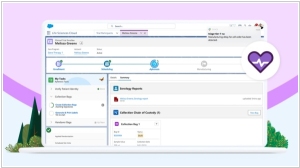Top 10: Cloud Communication platforms
Updated: July 31, 2023
Cloud communication platforms are comprehensive solutions that enable businesses to manage all their communication channels through the cloud. These platforms offer a unified approach, integrating various communication tools such as voice, video, messaging, and collaboration applications into a single, easy-to-use interface. By leveraging cloud technology, these platforms provide flexibility, scalability, and cost-efficiency, allowing businesses to adapt their communication needs based on demand. Cloud communication platforms also often include features like real-time analytics and reporting, which offer valuable insights into customer interactions and communication trends. With the ability to support remote work and enable seamless collaboration, cloud communication platforms have become a crucial asset for businesses seeking to streamline communication processes, enhance customer engagement, and improve overall operational efficiency.
Some of the most popular cloud communication platforms are listed below.
See also: Top 10 VoIP services
See also: Top 10 VoIP services
2020. Omnichannel communication platform MessageBird raises $200M
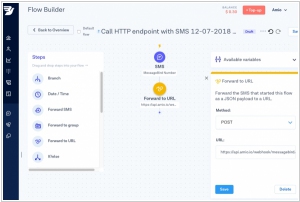
MessageBird, the cloud communications company headquartered in Amsterdam, has successfully secured $200 million in Series C funding. While initially perceived as a European or "rest of the world" rival to Twilio, a U.S.-based cloud communications platform, MessageBird has since repositioned itself as an "Omnichannel Platform-as-a-Service" (OPaaS). The primary goal is to enable enterprises, as well as medium and smaller-sized companies, to effortlessly engage with customers through their preferred communication channels. The platform offers support for various channels right from the start, including WhatsApp, Messenger, WeChat, Twitter, Line, Telegram, SMS, email, and voice. This flexibility empowers customers to initiate their interactions online and seamlessly transition to a more convenient channel, such as their preferred mobile messaging app, ensuring uninterrupted communication.
2020. Twilio launches an app for frontline workers

Twilio, a provider of communication APIs for messaging, voice, and video, has recently introduced a new API called Video Web RTC Go. This API offers a complimentary video service that enables the integration of 1:1 video chats into web and mobile applications. While Twilio emphasizes that this is not a free trial, users are allotted 25 GB of bandwidth per month through Twilio's relays, equivalent to approximately 100,000 participant minutes. Twilio describes this as a free tier and a developer-friendly offering designed to facilitate the creation of one-to-one video connections. These connections can be utilized for various purposes, such as distance learning, client consultations, and other emerging use cases that have evolved during the pandemic.
2020. Microsoft challenges Twilio with the launch of Azure Communication Services
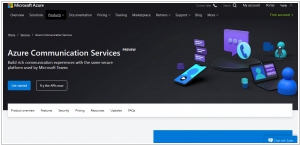
Microsoft has unveiled Azure Communication Services, a comprehensive suite of capabilities within its cloud infrastructure that empowers developers to integrate voice and video calling, chat, text messaging, and traditional telephony functionalities into their applications. This offering marks the "first fully managed communication platform" introduced by a leading cloud provider, distinguishing itself from similar features provided by Google and AWS. While these rivals may offer individual components such as AWS notification service, Azure Communication Services presents a unified communication solution, positioning it as a formidable contender against Twilio and emerging player MessageBird.
2018. Twilio adds support for LINE
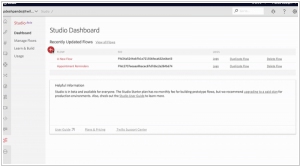
Communications API platform Twilio has made an announcement regarding its latest addition of support for the messenger service LINE. This means that Twilio developers now have the capability to engage with users on the LINE platform. The LINE support also extends to Twilio Studio, the company's user-friendly app builder, as well as Flex, Twilio's recently unveiled contact center solution. Twilio enables the sending and receiving of messages and offers compatibility with numerous popular messaging platforms, including Facebook Messenger, Slack, WeChat, Kik, and the new RCS text messaging standard. Notably absent from this list are platforms such as WhatsApp and Snapchat, as they currently lack APIs that can be easily integrated into Twilio's infrastructure.
2016. VoIP platform provider Twilio launches add-on marketplace
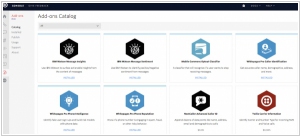
Twilio has recently introduced its add-ons marketplace, providing developers who utilize Twilio's API to enhance the messaging functionalities of their applications and services with the opportunity to seamlessly integrate Twilio's services with those offered by its partners. With Twilio taking care of billing on behalf of its partners, developers can conveniently access these services through a single API call. Currently, Twilio has partnered with 18 renowned companies, including IBM Watson, NextCaller, WhitePages Pro, Mobile Commons, and Payfone. These add-ons are specifically designed for Twilio's Programmable SMS, Programmable Voice, and Twilio Lookup services, enabling developers to extend the capabilities of their applications and leverage the expertise of various trusted partners.
2015. Communications platform Twilio raised $130M
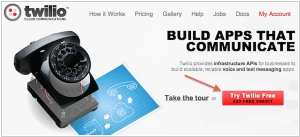
Twilio, the communications platform focused on developers, has successfully secured a substantial $130 million in Series E funding. This latest funding round will enable Twilio to expedite its global expansion plans and further its initiatives to enter the enterprise market. Additionally, the company intends to utilize the funding to capitalize on strategic opportunities, including its recent acquisition of Authy. Twilio's groundbreaking cloud communications platform has revolutionized business-to-customer interactions, and Salesforce Ventures is thrilled to contribute to Twilio's continued growth acceleration. The completion of this funding round also indicates Twilio's preparation for an initial public offering (IPO). Overall, Twilio has now raised an impressive total of $233.7 $240 million. While the company has not disclosed its current valuation, it is reasonable to assume that it has surpassed the $1 billion mark.
2015. Cisco acquires cloud VoIP platform Tropo

Cisco has recently announced its intention to acquire Tropo, a communications platform similar to Twilio. Tropo provides telephony, messaging, and various other communication tools that can be seamlessly integrated into any application. By leveraging Tropo's APIs, developers can easily enhance their applications with a wide range of functionalities, particularly in the realm of communication. While Twilio is widely recognized as a prominent communications API, Cisco's acquisition of Tropo provides them with immediate access to a vast community of over 200,000 developers (according to Cisco's figures). Tropo offers its product for free to developers and monetizes by charging for each communication conducted through its platform. This strategic purchase not only grants Cisco access to Tropo's technology but also serves as a means to attract developers to its broader ecosystem. This is particularly significant for Cisco, as an established company seeking to navigate the challenges posed by disruptive market forces.
2015. Twilio acquires 2-factor authentication service Authy
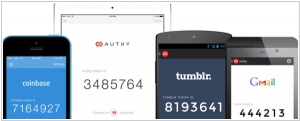
Communications API provider Twilio has recently completed the acquisition of Authy, a service that offers two-factor authentication solutions to both end users and enterprises. Authy seamlessly aligns with Twilio, as Twilio has previously powered elements of the authentication and verification process for renowned brands like Intuit, Box, and GitHub. By integrating Authy's service into Twilio, users will benefit from an enhanced self-service and policy-management experience, along with features such as mobile phone-based TOTP (time-based one-time passwords). Interestingly, several Twilio customers have already developed their own two-factor authentication services utilizing Twilio's SMS and voice services. With the availability of Authy as a product option on Twilio.com, these customers will soon have the opportunity to streamline their authentication systems and migrate to Authy, following some necessary engineering adjustments.
2014. Twilio adds MMS messages to its API cloud
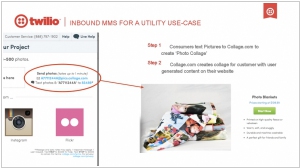
Twilio, the cloud service renowned for its simple APIs that enable developers to seamlessly integrate text messaging and VoIP functionality into their applications, has introduced a new feature: MMS picture messaging. This enhancement empowers employees to utilize their work numbers, provided by Twilio, to send MMS messages containing captivating items that have arrived in their store, rather than using their personal numbers. Similarly, customers can now leverage their apps to establish contact with companies, allowing them to send pictures of damaged products for refunds or to seek technical assistance. Twilio MMS supports all standard phone numbers within the United States and Canada, with pricing starting at $0.01 per received message and $0.02 per sent message, which can be further adjusted based on volume.
2014. Twilio and Google want to turn Google Chromebooks into call centers
Twilio and Google have joined forces to develop a collaborative product known as Twilio CX for Chromebook. This innovative offering entails a Google Chromebook that comes preloaded with the Twilio client, enabling users to embed a VoIP-phone directly into a webpage. With this feature, users can conveniently make phone calls within their browser. Additionally, this Chromebook includes a Plantronics voice headset and provides users with 7,500 Twilio minutes per month. Interested individuals can acquire this comprehensive package for $75 per month, along with an additional fee determined by Twilio's partners who distribute the device to the public. LiveOps, a cloud-based contact center, has been selected as the launch partner for this initiative, although Twilio has expressed intentions to expand the program to involve other partners in the future.
2014. Twilio launches new offering to help companies deliver more messages
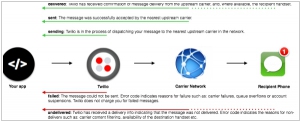
The cloud communications company Twilio has introduced a new feature called Message Delivery Information, designed to help its customers effectively reach a larger audience. This offering enables users to enhance their delivery rates and connect with a higher percentage of their customer base. By utilizing this tool, you will gain access to crucial details for each message you send. In case of successful delivery, you will receive a confirmation, while unsuccessful deliveries will be accompanied by an explanation. For instance, if a message violates carrier guidelines or if you send a text to a landline number, such information will be specified in the Message Delivery Information. This feature is available free of charge for all communications sent using Twilio's messaging APIs.


